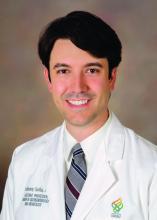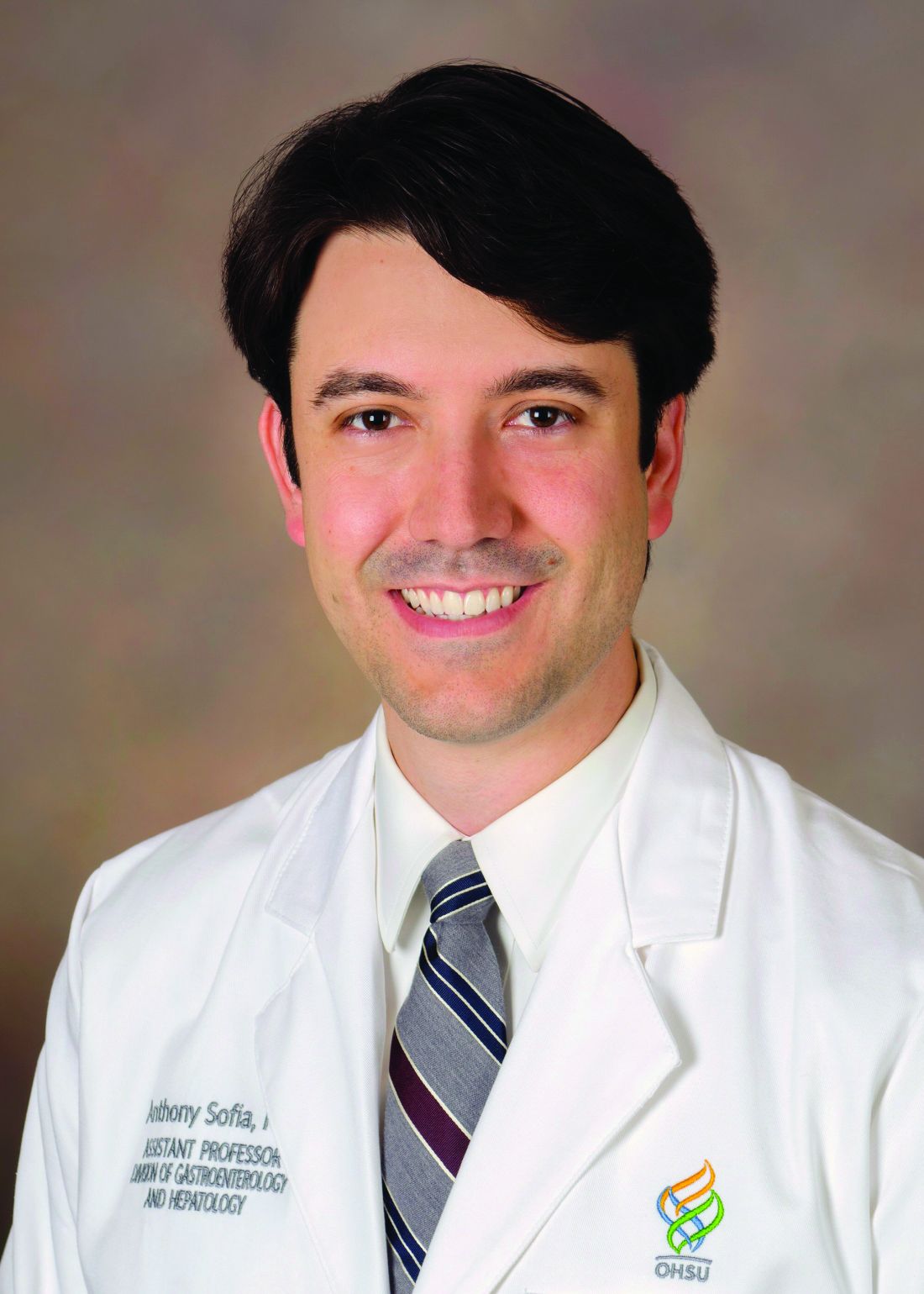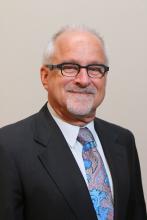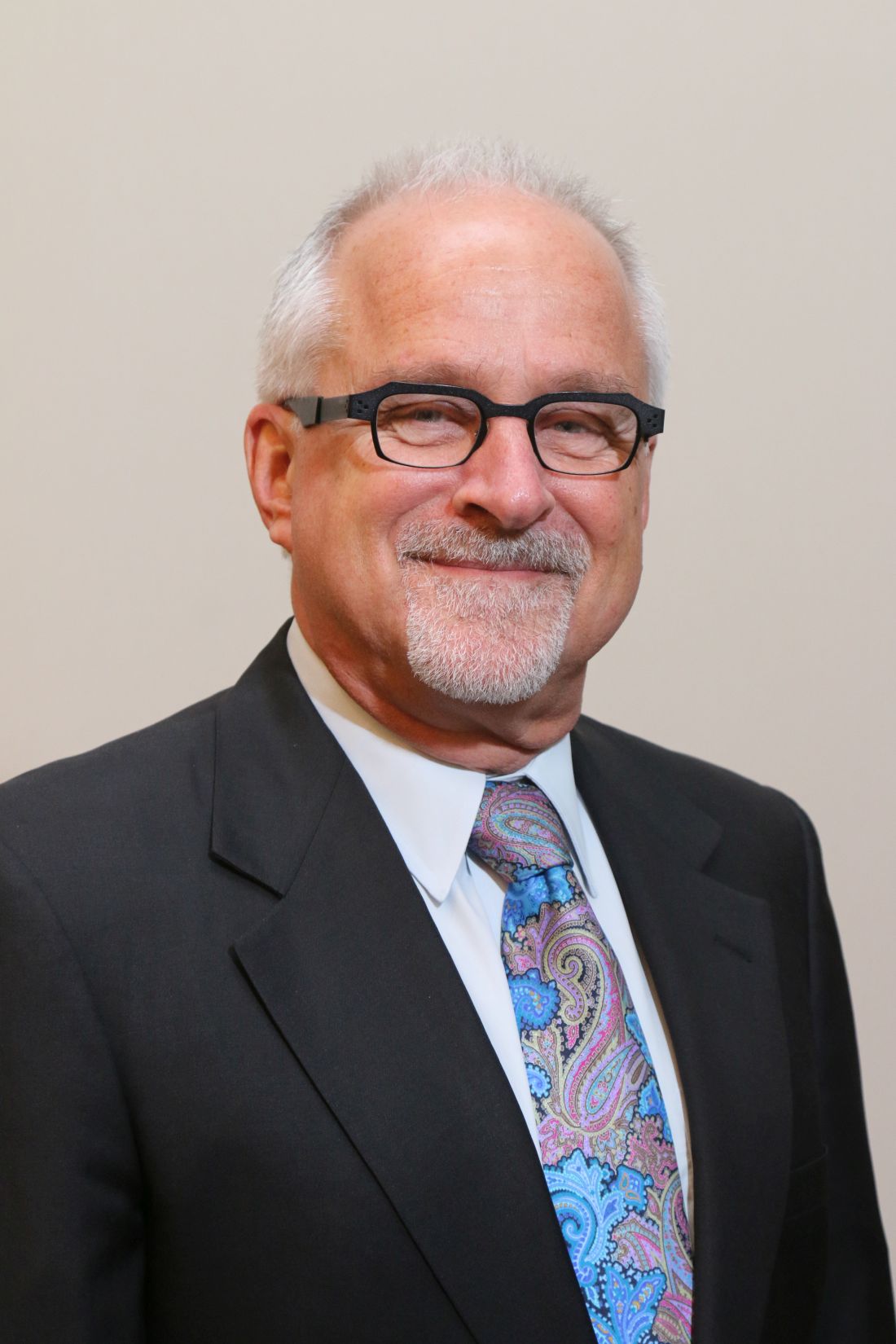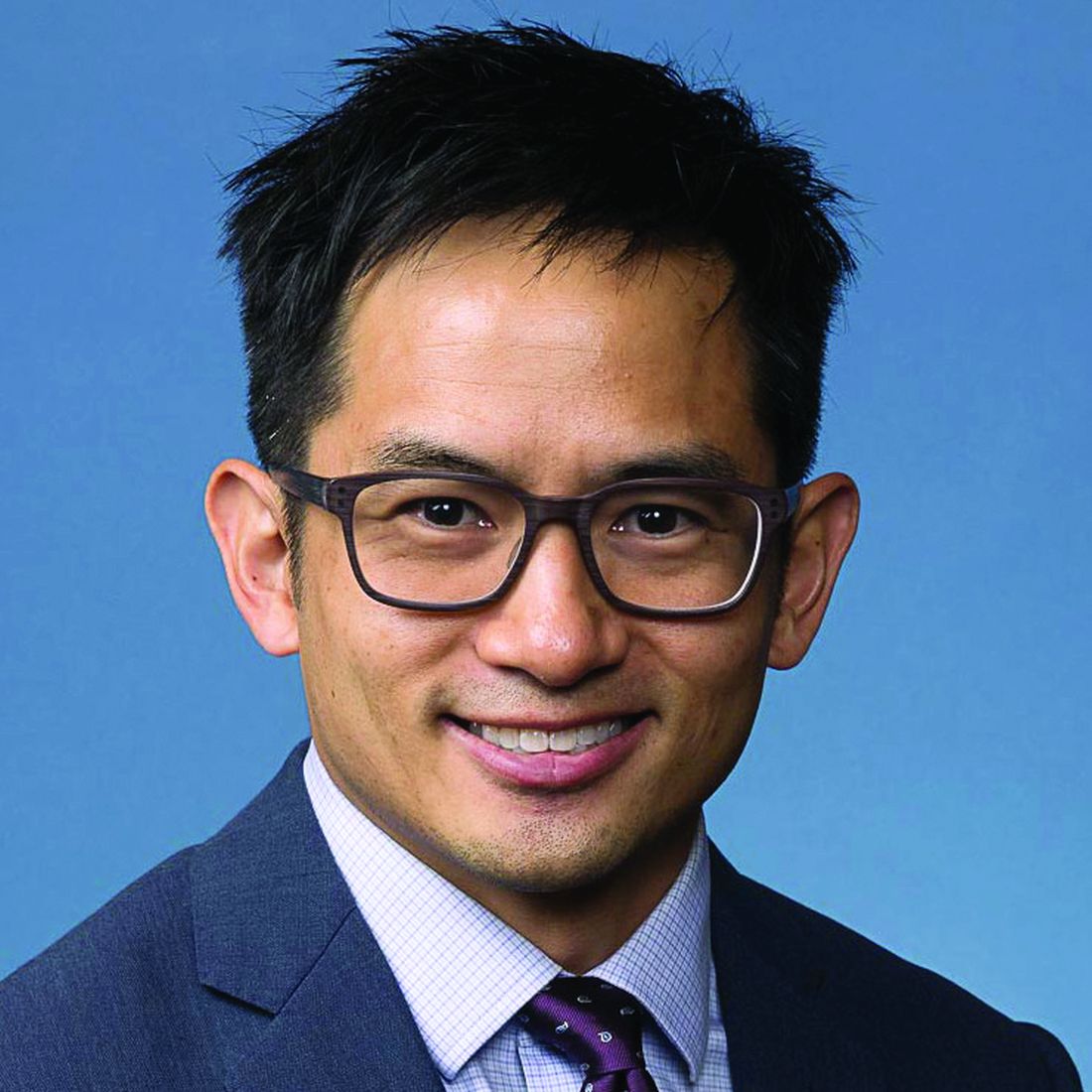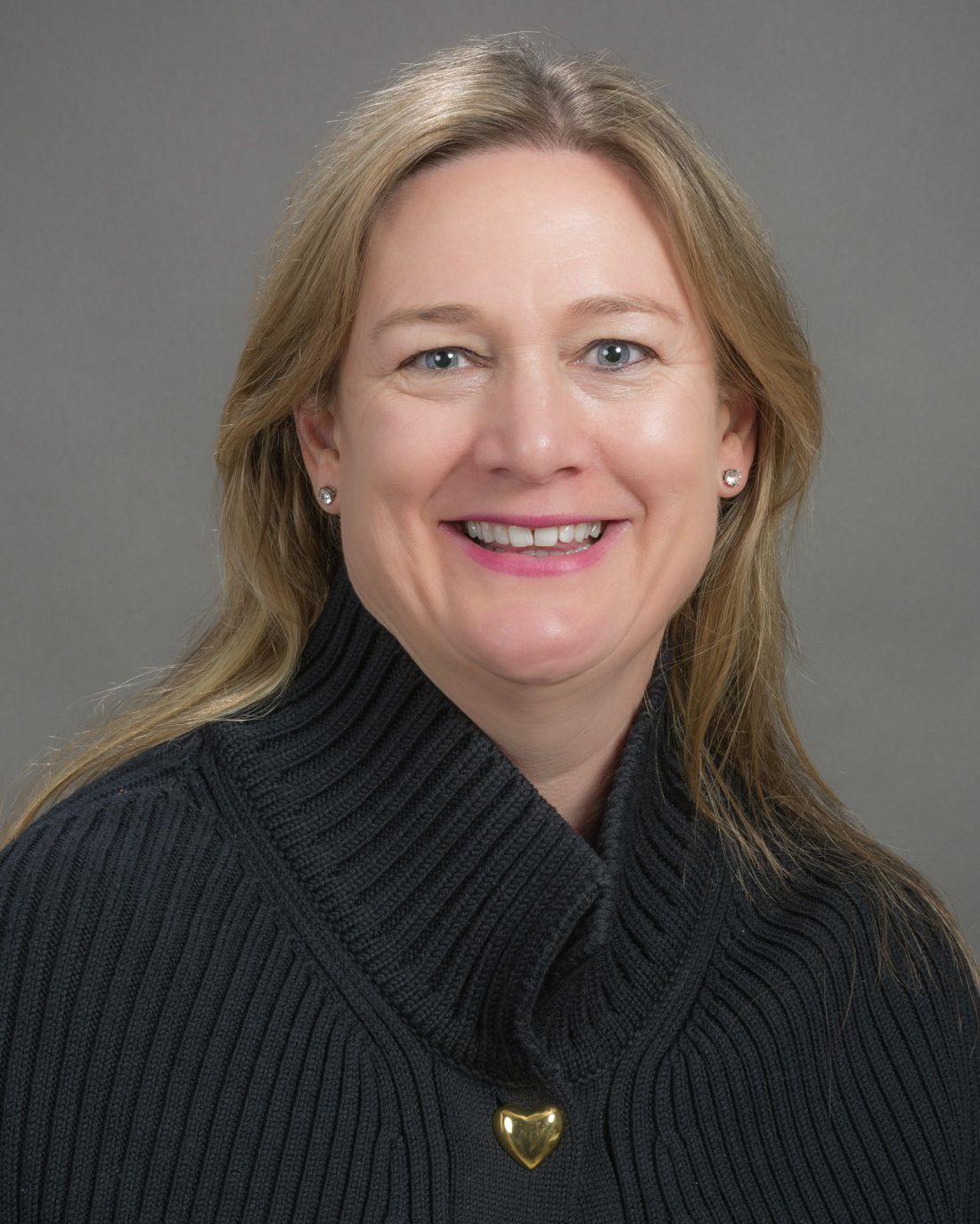User login
AGA Outlines a Plan to Improve the Care of All Patients with lBD
A new AGA white paper, published in Clinical Gastroenterology and Hepatology, highlights barriers to care and calls for collaboration among our healthcare community, insurers, pharmaceutical companies, and legislators to improve and optimize care for more than 3 million Americans living with inflammatory bowel disease (IBD).
Over the last two decades, there has been a revolution in therapeutics fueled by exciting research and development that continues to expand the treatment options for IBD, offering tools for better disease control. However, the most effective therapies are cost prohibitive and have largely become inaccessible due to insurer-mandated barriers to care, such as prior authorization and step therapy.
AGA has created a plan that addresses these barriers and proposes tangible solutions to provide patients with high quality, high value care.
1. The lived experiences and valuable insights from both patients and expert clinicians should be reflected in the data and research represented in the field.
2. AGA recognizes the powerful benefit of individually tailoring IBD therapy based on risk, comorbidities and response, and encourages all stakeholders to do the same.
3. As a field, we need to move beyond insurer-mandated step therapy and fail first policies.
4. AGA urges insurers to cover all necessary disease activity and drug level monitoring, which will ensure patients are able to achieve treat-to-target-driven outcomes.
5. Streamlined and expedited expert reviews should be guaranteed to all providers when they are mandated by an insurer.
6. To ensure transparency and accountability, AGA wants to require that payors publish their denial and appeals data.
7. AGA believes that holistic patient-centered multidisciplinary care, including psychosocial and dietary support, should be covered by insurance. Having access to such care contributes to improved patient resilience and well-being, which will lead to decreased health care utilization and better health outcomes.
8. AGA supports the creation and continuation of a variety of patient education programs to improve health literacy and awareness of complex health care systems.
9. AGA is committed to improving patients’ access to expert specialized clinical IBD care. This includes flexible delivery models to ensure that underserved populations are being reached. In addition, AGA supports training and educating specialty providers across the spectrum of medical care (advanced practice providers, nurse educators, etc.) to increase the number of qualified IBD providers.
10. Piloting innovative shared incentive partnerships between high value subspecialty care practices and payors will be a new shared goal.
11. AGA wants to engage pharmaceutical partners in developing equitable programs to address prohibitive drug costs while also expanding patient access and support.
12. AGA plans to continue to advocate for legislation to make access to therapy equitable for Medicare and Medicaid patients.
“Unaffordable drug costs, step therapy, and other insurer-mandated barriers are fixable problems,” said M. Anthony Sofia, MD, a coauthor of the AGA white paper and an IBD specialist at Oregon Health and Science University, Portland.
“Every day, we see people that have been harmed by delayed and inadequate care. Solving these barriers would lift an unimaginable weight off our patient’s shoulders and allow them to lead healthier lives. We must work together to collaborate on solutions to strengthen and advance the care for all people with IBD.”
View the full white paper here.
A new AGA white paper, published in Clinical Gastroenterology and Hepatology, highlights barriers to care and calls for collaboration among our healthcare community, insurers, pharmaceutical companies, and legislators to improve and optimize care for more than 3 million Americans living with inflammatory bowel disease (IBD).
Over the last two decades, there has been a revolution in therapeutics fueled by exciting research and development that continues to expand the treatment options for IBD, offering tools for better disease control. However, the most effective therapies are cost prohibitive and have largely become inaccessible due to insurer-mandated barriers to care, such as prior authorization and step therapy.
AGA has created a plan that addresses these barriers and proposes tangible solutions to provide patients with high quality, high value care.
1. The lived experiences and valuable insights from both patients and expert clinicians should be reflected in the data and research represented in the field.
2. AGA recognizes the powerful benefit of individually tailoring IBD therapy based on risk, comorbidities and response, and encourages all stakeholders to do the same.
3. As a field, we need to move beyond insurer-mandated step therapy and fail first policies.
4. AGA urges insurers to cover all necessary disease activity and drug level monitoring, which will ensure patients are able to achieve treat-to-target-driven outcomes.
5. Streamlined and expedited expert reviews should be guaranteed to all providers when they are mandated by an insurer.
6. To ensure transparency and accountability, AGA wants to require that payors publish their denial and appeals data.
7. AGA believes that holistic patient-centered multidisciplinary care, including psychosocial and dietary support, should be covered by insurance. Having access to such care contributes to improved patient resilience and well-being, which will lead to decreased health care utilization and better health outcomes.
8. AGA supports the creation and continuation of a variety of patient education programs to improve health literacy and awareness of complex health care systems.
9. AGA is committed to improving patients’ access to expert specialized clinical IBD care. This includes flexible delivery models to ensure that underserved populations are being reached. In addition, AGA supports training and educating specialty providers across the spectrum of medical care (advanced practice providers, nurse educators, etc.) to increase the number of qualified IBD providers.
10. Piloting innovative shared incentive partnerships between high value subspecialty care practices and payors will be a new shared goal.
11. AGA wants to engage pharmaceutical partners in developing equitable programs to address prohibitive drug costs while also expanding patient access and support.
12. AGA plans to continue to advocate for legislation to make access to therapy equitable for Medicare and Medicaid patients.
“Unaffordable drug costs, step therapy, and other insurer-mandated barriers are fixable problems,” said M. Anthony Sofia, MD, a coauthor of the AGA white paper and an IBD specialist at Oregon Health and Science University, Portland.
“Every day, we see people that have been harmed by delayed and inadequate care. Solving these barriers would lift an unimaginable weight off our patient’s shoulders and allow them to lead healthier lives. We must work together to collaborate on solutions to strengthen and advance the care for all people with IBD.”
View the full white paper here.
A new AGA white paper, published in Clinical Gastroenterology and Hepatology, highlights barriers to care and calls for collaboration among our healthcare community, insurers, pharmaceutical companies, and legislators to improve and optimize care for more than 3 million Americans living with inflammatory bowel disease (IBD).
Over the last two decades, there has been a revolution in therapeutics fueled by exciting research and development that continues to expand the treatment options for IBD, offering tools for better disease control. However, the most effective therapies are cost prohibitive and have largely become inaccessible due to insurer-mandated barriers to care, such as prior authorization and step therapy.
AGA has created a plan that addresses these barriers and proposes tangible solutions to provide patients with high quality, high value care.
1. The lived experiences and valuable insights from both patients and expert clinicians should be reflected in the data and research represented in the field.
2. AGA recognizes the powerful benefit of individually tailoring IBD therapy based on risk, comorbidities and response, and encourages all stakeholders to do the same.
3. As a field, we need to move beyond insurer-mandated step therapy and fail first policies.
4. AGA urges insurers to cover all necessary disease activity and drug level monitoring, which will ensure patients are able to achieve treat-to-target-driven outcomes.
5. Streamlined and expedited expert reviews should be guaranteed to all providers when they are mandated by an insurer.
6. To ensure transparency and accountability, AGA wants to require that payors publish their denial and appeals data.
7. AGA believes that holistic patient-centered multidisciplinary care, including psychosocial and dietary support, should be covered by insurance. Having access to such care contributes to improved patient resilience and well-being, which will lead to decreased health care utilization and better health outcomes.
8. AGA supports the creation and continuation of a variety of patient education programs to improve health literacy and awareness of complex health care systems.
9. AGA is committed to improving patients’ access to expert specialized clinical IBD care. This includes flexible delivery models to ensure that underserved populations are being reached. In addition, AGA supports training and educating specialty providers across the spectrum of medical care (advanced practice providers, nurse educators, etc.) to increase the number of qualified IBD providers.
10. Piloting innovative shared incentive partnerships between high value subspecialty care practices and payors will be a new shared goal.
11. AGA wants to engage pharmaceutical partners in developing equitable programs to address prohibitive drug costs while also expanding patient access and support.
12. AGA plans to continue to advocate for legislation to make access to therapy equitable for Medicare and Medicaid patients.
“Unaffordable drug costs, step therapy, and other insurer-mandated barriers are fixable problems,” said M. Anthony Sofia, MD, a coauthor of the AGA white paper and an IBD specialist at Oregon Health and Science University, Portland.
“Every day, we see people that have been harmed by delayed and inadequate care. Solving these barriers would lift an unimaginable weight off our patient’s shoulders and allow them to lead healthier lives. We must work together to collaborate on solutions to strengthen and advance the care for all people with IBD.”
View the full white paper here.
AGA Research Foundation Memorial and Honorary Gifts: A Special Tribute
Did you know you can honor a family member, friend, or colleague whose life has been touched by GI research through a gift to the AGA Research Foundation? Your gift will honor a loved one or yourself and support the AGA Research Awards Program, while giving you a tax benefit.
- Giving now or later. Any charitable gift can be made in honor or memory of someone.
- A gift today. An outright gift will help fund the AGA Research Awards Program. Your gift will assist in furthering basic digestive disease research which can ultimately advance research into all digestive diseases. The financial benefits include an income tax deduction and possible elimination of capital gains tax. A cash gift of $5,000 or more qualifies for membership in the AGA Supporter Circle.
- A gift through your will or living trust. You can include a bequest in your will or living trust stating that a specific asset, certain dollar amount, or more commonly a percentage of your estate will pass to the AGA Research Foundation in honor of your loved one. A gift in your will of $50,000 or more qualifies for membership in the AGA Legacy Society, which recognizes the foundation’s most generous individual donors.
- Named commentary section funds. You can support a commentary section in a specific AGA journal to honor or memorialize a loved one. This can be established with a gift of $100,000 over the course of 5 years or through an estate gift. The AGA Institute Publications Committee will work with you to provide name recognition for the commentary section in a specific AGA journal for five years. All content and editing will be conducted by the editorial board of the journal.
Your Next Step
An honorary gift is a wonderful way to acknowledge someone’s vision for the future. To learn more about ways to recognize your honoree, visit our website at www.foundation.gastro.org.
Did you know you can honor a family member, friend, or colleague whose life has been touched by GI research through a gift to the AGA Research Foundation? Your gift will honor a loved one or yourself and support the AGA Research Awards Program, while giving you a tax benefit.
- Giving now or later. Any charitable gift can be made in honor or memory of someone.
- A gift today. An outright gift will help fund the AGA Research Awards Program. Your gift will assist in furthering basic digestive disease research which can ultimately advance research into all digestive diseases. The financial benefits include an income tax deduction and possible elimination of capital gains tax. A cash gift of $5,000 or more qualifies for membership in the AGA Supporter Circle.
- A gift through your will or living trust. You can include a bequest in your will or living trust stating that a specific asset, certain dollar amount, or more commonly a percentage of your estate will pass to the AGA Research Foundation in honor of your loved one. A gift in your will of $50,000 or more qualifies for membership in the AGA Legacy Society, which recognizes the foundation’s most generous individual donors.
- Named commentary section funds. You can support a commentary section in a specific AGA journal to honor or memorialize a loved one. This can be established with a gift of $100,000 over the course of 5 years or through an estate gift. The AGA Institute Publications Committee will work with you to provide name recognition for the commentary section in a specific AGA journal for five years. All content and editing will be conducted by the editorial board of the journal.
Your Next Step
An honorary gift is a wonderful way to acknowledge someone’s vision for the future. To learn more about ways to recognize your honoree, visit our website at www.foundation.gastro.org.
Did you know you can honor a family member, friend, or colleague whose life has been touched by GI research through a gift to the AGA Research Foundation? Your gift will honor a loved one or yourself and support the AGA Research Awards Program, while giving you a tax benefit.
- Giving now or later. Any charitable gift can be made in honor or memory of someone.
- A gift today. An outright gift will help fund the AGA Research Awards Program. Your gift will assist in furthering basic digestive disease research which can ultimately advance research into all digestive diseases. The financial benefits include an income tax deduction and possible elimination of capital gains tax. A cash gift of $5,000 or more qualifies for membership in the AGA Supporter Circle.
- A gift through your will or living trust. You can include a bequest in your will or living trust stating that a specific asset, certain dollar amount, or more commonly a percentage of your estate will pass to the AGA Research Foundation in honor of your loved one. A gift in your will of $50,000 or more qualifies for membership in the AGA Legacy Society, which recognizes the foundation’s most generous individual donors.
- Named commentary section funds. You can support a commentary section in a specific AGA journal to honor or memorialize a loved one. This can be established with a gift of $100,000 over the course of 5 years or through an estate gift. The AGA Institute Publications Committee will work with you to provide name recognition for the commentary section in a specific AGA journal for five years. All content and editing will be conducted by the editorial board of the journal.
Your Next Step
An honorary gift is a wonderful way to acknowledge someone’s vision for the future. To learn more about ways to recognize your honoree, visit our website at www.foundation.gastro.org.
AGA Tech Summit Focuses on Accelerating Innovation
The AGA Tech Summit is building on the success of past summits and moving in a new direction. The reimagined summit will accelerate innovation by bringing together MedTech startups, innovators, investors and leaders in the field.
“It’s a new world out there. The Tech Summit now reflects the new direction AGA is taking in innovation,” said Lawrence R. Kosinski, MD, AGA at-large councilor for development and growth. “We want to help GI innovators successfully navigate the innovation lifecycle from start to finish and bring new technologies to market.”
The Tech Summit will take place April 11-12 in Chicago at MATTER, located at the Merchandise Mart. MATTER supports healthcare startups at all stages of growth and brings together industry executives, entrepreneurs, and investors to accelerate innovation, advance care and improve lives.
Highlights of the Tech Summit include:
- Keynote addresses from leaders in the field of GI innovation.
- Panel discussions with VC strategists.
- The Shark Tank Pitch Competition featuring emerging GI technologies.
- Multiple opportunities to network innovators, investors and leaders in the field.
- One-on-one consultations with VCs.
.
The AGA Tech Summit is building on the success of past summits and moving in a new direction. The reimagined summit will accelerate innovation by bringing together MedTech startups, innovators, investors and leaders in the field.
“It’s a new world out there. The Tech Summit now reflects the new direction AGA is taking in innovation,” said Lawrence R. Kosinski, MD, AGA at-large councilor for development and growth. “We want to help GI innovators successfully navigate the innovation lifecycle from start to finish and bring new technologies to market.”
The Tech Summit will take place April 11-12 in Chicago at MATTER, located at the Merchandise Mart. MATTER supports healthcare startups at all stages of growth and brings together industry executives, entrepreneurs, and investors to accelerate innovation, advance care and improve lives.
Highlights of the Tech Summit include:
- Keynote addresses from leaders in the field of GI innovation.
- Panel discussions with VC strategists.
- The Shark Tank Pitch Competition featuring emerging GI technologies.
- Multiple opportunities to network innovators, investors and leaders in the field.
- One-on-one consultations with VCs.
.
The AGA Tech Summit is building on the success of past summits and moving in a new direction. The reimagined summit will accelerate innovation by bringing together MedTech startups, innovators, investors and leaders in the field.
“It’s a new world out there. The Tech Summit now reflects the new direction AGA is taking in innovation,” said Lawrence R. Kosinski, MD, AGA at-large councilor for development and growth. “We want to help GI innovators successfully navigate the innovation lifecycle from start to finish and bring new technologies to market.”
The Tech Summit will take place April 11-12 in Chicago at MATTER, located at the Merchandise Mart. MATTER supports healthcare startups at all stages of growth and brings together industry executives, entrepreneurs, and investors to accelerate innovation, advance care and improve lives.
Highlights of the Tech Summit include:
- Keynote addresses from leaders in the field of GI innovation.
- Panel discussions with VC strategists.
- The Shark Tank Pitch Competition featuring emerging GI technologies.
- Multiple opportunities to network innovators, investors and leaders in the field.
- One-on-one consultations with VCs.
.
BCBSMA Rolls Back Restrictive Anesthesia Policy
In a significant victory for patients and healthcare providers, . The change is retroactive to Jan. 1, 2024, so no claims will be rejected for payment.
The decision follows intense advocacy efforts by a coalition that included AGA, the American Society of Anesthesiologists (ASA), and the American College of Surgeons (ACS), with the Massachusetts Gastroenterology Association demonstrating exceptional leadership and the Massachusetts Society of Anesthesiologists (MSA) persevering throughout the process. The BCBSMA heeded the coalition’s warnings about the potential impact on cancer screening access and patient choice in GI care.
Physician leaders representing the societies played a crucial role in meetings with BCBSMA, contributing to this positive outcome. Member engagement, including contacting legislators, media outreach, and participation in the #Noto154 campaign, had a substantial impact.
BCBSMA informed the societies that all claims will be paid; however, documentation will still be required for patients presenting with ASA 1 and ASA 2. Providers may download a list of commonly used diagnosis codes documented with the administration of propofol. The AGA encourages members to still be mindful that BCBSMA will be monitoring the use of these codes for propofol administration. Members can see BCBSMA policy 154 for the complete list of diagnosis codes that support use of MAC. The societies have requested that BCBSMA provide education to providers on this requirement.
The AGA intends to closely monitor developments to ensure similar policies are not introduced nationally.
In a significant victory for patients and healthcare providers, . The change is retroactive to Jan. 1, 2024, so no claims will be rejected for payment.
The decision follows intense advocacy efforts by a coalition that included AGA, the American Society of Anesthesiologists (ASA), and the American College of Surgeons (ACS), with the Massachusetts Gastroenterology Association demonstrating exceptional leadership and the Massachusetts Society of Anesthesiologists (MSA) persevering throughout the process. The BCBSMA heeded the coalition’s warnings about the potential impact on cancer screening access and patient choice in GI care.
Physician leaders representing the societies played a crucial role in meetings with BCBSMA, contributing to this positive outcome. Member engagement, including contacting legislators, media outreach, and participation in the #Noto154 campaign, had a substantial impact.
BCBSMA informed the societies that all claims will be paid; however, documentation will still be required for patients presenting with ASA 1 and ASA 2. Providers may download a list of commonly used diagnosis codes documented with the administration of propofol. The AGA encourages members to still be mindful that BCBSMA will be monitoring the use of these codes for propofol administration. Members can see BCBSMA policy 154 for the complete list of diagnosis codes that support use of MAC. The societies have requested that BCBSMA provide education to providers on this requirement.
The AGA intends to closely monitor developments to ensure similar policies are not introduced nationally.
In a significant victory for patients and healthcare providers, . The change is retroactive to Jan. 1, 2024, so no claims will be rejected for payment.
The decision follows intense advocacy efforts by a coalition that included AGA, the American Society of Anesthesiologists (ASA), and the American College of Surgeons (ACS), with the Massachusetts Gastroenterology Association demonstrating exceptional leadership and the Massachusetts Society of Anesthesiologists (MSA) persevering throughout the process. The BCBSMA heeded the coalition’s warnings about the potential impact on cancer screening access and patient choice in GI care.
Physician leaders representing the societies played a crucial role in meetings with BCBSMA, contributing to this positive outcome. Member engagement, including contacting legislators, media outreach, and participation in the #Noto154 campaign, had a substantial impact.
BCBSMA informed the societies that all claims will be paid; however, documentation will still be required for patients presenting with ASA 1 and ASA 2. Providers may download a list of commonly used diagnosis codes documented with the administration of propofol. The AGA encourages members to still be mindful that BCBSMA will be monitoring the use of these codes for propofol administration. Members can see BCBSMA policy 154 for the complete list of diagnosis codes that support use of MAC. The societies have requested that BCBSMA provide education to providers on this requirement.
The AGA intends to closely monitor developments to ensure similar policies are not introduced nationally.
AGA Research Scholar Awards Advance the GI Field
AGA’s flagship award is the Research Scholar Award, which provides career development support for young investigators in gastroenterology and hepatology research. In the last 10 years, the AGA Research Foundation has funded 63 young scientists through a Research Scholar Award grant.
“I want to express my sincere gratitude to the AGA Research Foundation and its benefactors. At this fragile and critical juncture, this AGA Research Scholar Award offers an unmatched opportunity to pursue the type of high-impact scientific work that allows a junior investigator such as myself to achieve the necessary momentum to create a nationally competitive research program,” states Alexander , MD, PhD, the Regent of the University of California, Los Angeles, 2023 AGA Research Scholar Award recipient.
Funded by the generosity of donors, the AGA Research Foundation’s research award program ensures that we are building a community of researchers whose work serves the greater community and benefits all our patients.
By joining others in supporting the AGA Research Foundation, you will ensure that young researchers have opportunities to continue their life-saving work. Your tax-deductible contribution supports the foundation’s research award program, including the Research Scholar Award, which ensures that studies are funded, discoveries are made, and patients are treated. Learn more or make a contribution at www.foundation.gastro.org.
AGA’s flagship award is the Research Scholar Award, which provides career development support for young investigators in gastroenterology and hepatology research. In the last 10 years, the AGA Research Foundation has funded 63 young scientists through a Research Scholar Award grant.
“I want to express my sincere gratitude to the AGA Research Foundation and its benefactors. At this fragile and critical juncture, this AGA Research Scholar Award offers an unmatched opportunity to pursue the type of high-impact scientific work that allows a junior investigator such as myself to achieve the necessary momentum to create a nationally competitive research program,” states Alexander , MD, PhD, the Regent of the University of California, Los Angeles, 2023 AGA Research Scholar Award recipient.
Funded by the generosity of donors, the AGA Research Foundation’s research award program ensures that we are building a community of researchers whose work serves the greater community and benefits all our patients.
By joining others in supporting the AGA Research Foundation, you will ensure that young researchers have opportunities to continue their life-saving work. Your tax-deductible contribution supports the foundation’s research award program, including the Research Scholar Award, which ensures that studies are funded, discoveries are made, and patients are treated. Learn more or make a contribution at www.foundation.gastro.org.
AGA’s flagship award is the Research Scholar Award, which provides career development support for young investigators in gastroenterology and hepatology research. In the last 10 years, the AGA Research Foundation has funded 63 young scientists through a Research Scholar Award grant.
“I want to express my sincere gratitude to the AGA Research Foundation and its benefactors. At this fragile and critical juncture, this AGA Research Scholar Award offers an unmatched opportunity to pursue the type of high-impact scientific work that allows a junior investigator such as myself to achieve the necessary momentum to create a nationally competitive research program,” states Alexander , MD, PhD, the Regent of the University of California, Los Angeles, 2023 AGA Research Scholar Award recipient.
Funded by the generosity of donors, the AGA Research Foundation’s research award program ensures that we are building a community of researchers whose work serves the greater community and benefits all our patients.
By joining others in supporting the AGA Research Foundation, you will ensure that young researchers have opportunities to continue their life-saving work. Your tax-deductible contribution supports the foundation’s research award program, including the Research Scholar Award, which ensures that studies are funded, discoveries are made, and patients are treated. Learn more or make a contribution at www.foundation.gastro.org.
Win! CMS reins in prior authorization
According to a rule issued by CMS, starting in 2026, health plans must decide on prior authorization requests within 72 hours for an expedited request or 7 days for non-urgent appeals.
The rule also requires plans to provide a detailed rationale for a denial and include metrics on denials and approvals.
AGA and our allies in the physician community have aggressively advocated that Congress and the Administration address prior auth, which slows patient access to care and contributes to physician burnout.
The rule applies to Medicare, Medicare Advantage (MA), Medicaid, Children’s Health Insurance Plans (CHIP), and qualified health plans on the exchange.
Thank you to our advocates who called on policymakers to take action to ensure patients receive care in a timely manner.
According to a rule issued by CMS, starting in 2026, health plans must decide on prior authorization requests within 72 hours for an expedited request or 7 days for non-urgent appeals.
The rule also requires plans to provide a detailed rationale for a denial and include metrics on denials and approvals.
AGA and our allies in the physician community have aggressively advocated that Congress and the Administration address prior auth, which slows patient access to care and contributes to physician burnout.
The rule applies to Medicare, Medicare Advantage (MA), Medicaid, Children’s Health Insurance Plans (CHIP), and qualified health plans on the exchange.
Thank you to our advocates who called on policymakers to take action to ensure patients receive care in a timely manner.
According to a rule issued by CMS, starting in 2026, health plans must decide on prior authorization requests within 72 hours for an expedited request or 7 days for non-urgent appeals.
The rule also requires plans to provide a detailed rationale for a denial and include metrics on denials and approvals.
AGA and our allies in the physician community have aggressively advocated that Congress and the Administration address prior auth, which slows patient access to care and contributes to physician burnout.
The rule applies to Medicare, Medicare Advantage (MA), Medicaid, Children’s Health Insurance Plans (CHIP), and qualified health plans on the exchange.
Thank you to our advocates who called on policymakers to take action to ensure patients receive care in a timely manner.
AGA sharpens focus on women
“Women continue to face unique barriers to leadership including gender bias, lack of role models, maternal discrimination, and lack of equal consideration for opportunities,” notes AGA President Barbara Jung, MD, AGAF. “AGA sits in a unique position where we can influence changes in academia and practice to improve the field for all women and particularly enhance women leaders.”
A tangible way AGA supports female leadership and career advancement is the Women in GI Regional Workshops. Throughout 2024, these workshops provide opportunities for networking, business and financial education training, burnout prevention strategies, and career advice.
Bigger picture, AGA’s Gender Equity Framework paints a compelling vision for the future in six domains:
- Bias & gender disparities: Academic institutions, healthcare systems, and practices establish regular systems of equity reviews and eradicate institutional gender disparities and bias.
- Leadership & career advancement: Equitable access to leadership in the field and professional GI societies for the benefit of medicine, research, and patient care.
- Wellness & balance: Women in GI experience balanced integration of family, work, community, health, and professional growth.
- Retention & recruitment: GI is the leading specialty for women in medicine and a sustainable career where women grow and thrive.
- Mentorship & sponsorship: The benefits of mentorship and sponsorship are universally recognized and incentivized in GI institutions and practices.
- Recognition: Equitable recognition of the achievements and contributions of women in GI.
In the coming years, AGA committees will collaborate with the AGA Women’s Committee to achieve the vision laid out in the AGA Gender Equity Framework. Thank you to the AGA Women’s Committee, which created the framework, under the leadership of chair Aimee Lucas, MD, MS, AGAF, and within the auspices of the AGA Equity Project (gastro.org/equity).
“Women continue to face unique barriers to leadership including gender bias, lack of role models, maternal discrimination, and lack of equal consideration for opportunities,” notes AGA President Barbara Jung, MD, AGAF. “AGA sits in a unique position where we can influence changes in academia and practice to improve the field for all women and particularly enhance women leaders.”
A tangible way AGA supports female leadership and career advancement is the Women in GI Regional Workshops. Throughout 2024, these workshops provide opportunities for networking, business and financial education training, burnout prevention strategies, and career advice.
Bigger picture, AGA’s Gender Equity Framework paints a compelling vision for the future in six domains:
- Bias & gender disparities: Academic institutions, healthcare systems, and practices establish regular systems of equity reviews and eradicate institutional gender disparities and bias.
- Leadership & career advancement: Equitable access to leadership in the field and professional GI societies for the benefit of medicine, research, and patient care.
- Wellness & balance: Women in GI experience balanced integration of family, work, community, health, and professional growth.
- Retention & recruitment: GI is the leading specialty for women in medicine and a sustainable career where women grow and thrive.
- Mentorship & sponsorship: The benefits of mentorship and sponsorship are universally recognized and incentivized in GI institutions and practices.
- Recognition: Equitable recognition of the achievements and contributions of women in GI.
In the coming years, AGA committees will collaborate with the AGA Women’s Committee to achieve the vision laid out in the AGA Gender Equity Framework. Thank you to the AGA Women’s Committee, which created the framework, under the leadership of chair Aimee Lucas, MD, MS, AGAF, and within the auspices of the AGA Equity Project (gastro.org/equity).
“Women continue to face unique barriers to leadership including gender bias, lack of role models, maternal discrimination, and lack of equal consideration for opportunities,” notes AGA President Barbara Jung, MD, AGAF. “AGA sits in a unique position where we can influence changes in academia and practice to improve the field for all women and particularly enhance women leaders.”
A tangible way AGA supports female leadership and career advancement is the Women in GI Regional Workshops. Throughout 2024, these workshops provide opportunities for networking, business and financial education training, burnout prevention strategies, and career advice.
Bigger picture, AGA’s Gender Equity Framework paints a compelling vision for the future in six domains:
- Bias & gender disparities: Academic institutions, healthcare systems, and practices establish regular systems of equity reviews and eradicate institutional gender disparities and bias.
- Leadership & career advancement: Equitable access to leadership in the field and professional GI societies for the benefit of medicine, research, and patient care.
- Wellness & balance: Women in GI experience balanced integration of family, work, community, health, and professional growth.
- Retention & recruitment: GI is the leading specialty for women in medicine and a sustainable career where women grow and thrive.
- Mentorship & sponsorship: The benefits of mentorship and sponsorship are universally recognized and incentivized in GI institutions and practices.
- Recognition: Equitable recognition of the achievements and contributions of women in GI.
In the coming years, AGA committees will collaborate with the AGA Women’s Committee to achieve the vision laid out in the AGA Gender Equity Framework. Thank you to the AGA Women’s Committee, which created the framework, under the leadership of chair Aimee Lucas, MD, MS, AGAF, and within the auspices of the AGA Equity Project (gastro.org/equity).
AGA members save on registration for DDW® 2024
, the world’s largest and most comprehensive gathering of gastroenterology clinicians, researchers and industry. Registration and housing are now open, and AGA members can save up to $380 on registration fees. Discounted registration rates are also available through the March 13 early bird deadline. AGA member trainees, students, residents and postdoctoral fellows can register for free through this date. Visit ddw.org/register to join us.
This year, DDW takes place May 18-21, in Washington, D.C., and online. Whether you work in patient care, research, training or academia, you’ll find content tailored to your essential role at every step.
Add on to your DDW experience with AGA’s one-day Postgraduate Course. Join us on May 18, from D.C. or online, to explore challenging patient cases, high-impact papers, and important practice updates that you can use immediately upon your return to the clinic. Learn more at pgcourse.gastro.org.
, the world’s largest and most comprehensive gathering of gastroenterology clinicians, researchers and industry. Registration and housing are now open, and AGA members can save up to $380 on registration fees. Discounted registration rates are also available through the March 13 early bird deadline. AGA member trainees, students, residents and postdoctoral fellows can register for free through this date. Visit ddw.org/register to join us.
This year, DDW takes place May 18-21, in Washington, D.C., and online. Whether you work in patient care, research, training or academia, you’ll find content tailored to your essential role at every step.
Add on to your DDW experience with AGA’s one-day Postgraduate Course. Join us on May 18, from D.C. or online, to explore challenging patient cases, high-impact papers, and important practice updates that you can use immediately upon your return to the clinic. Learn more at pgcourse.gastro.org.
, the world’s largest and most comprehensive gathering of gastroenterology clinicians, researchers and industry. Registration and housing are now open, and AGA members can save up to $380 on registration fees. Discounted registration rates are also available through the March 13 early bird deadline. AGA member trainees, students, residents and postdoctoral fellows can register for free through this date. Visit ddw.org/register to join us.
This year, DDW takes place May 18-21, in Washington, D.C., and online. Whether you work in patient care, research, training or academia, you’ll find content tailored to your essential role at every step.
Add on to your DDW experience with AGA’s one-day Postgraduate Course. Join us on May 18, from D.C. or online, to explore challenging patient cases, high-impact papers, and important practice updates that you can use immediately upon your return to the clinic. Learn more at pgcourse.gastro.org.
Elevate Your Career: AGA Women in GI Regional Workshops Await
As a woman in a dynamic and ever-changing profession, balancing life as a powerhouse physician or scientist is no easy feat.
Expanded to six workshops in 2024, AGA is pleased to offer regionally curated workshops with distinguished speakers at all experience levels to fuel your professional and personal growth. Participate in candid discussions regarding the distinct challenges you face as a woman navigating the 21st century healthcare environment. Derive inspiration from your community and cultivate meaningful connections that will carry you beyond the workshop.
Join us in-person or virtually, whatever fits into your busy schedule. We are also pleased to offer travel grants of up to $300 (per workshop) to help offset the costs of attending this program for one selected individual per region. The travel grant is to support travel and registration fees for early-career women. Additional details for the Maria Leo-Lieber Travel Award may be found in your confirmation email.
Ready to thrive? Register today to attend one of our first workshops or stay tuned for an additional workshop coming near you.
This program is supported by Janssen.
Midwest Regional Workshop
Saturday, Feb. 24, 2024
8 a.m.-3 p.m. CT
University of Chicago, Gleacher Center, Chicago, IL
Deadline to apply for a travel grant: Feb. 9, 2024 Deadline to register: Feb. 16, 2024
Click here to register.
Western Regional Workshop
Saturday, April 27, 2024
8 a.m.-3 p.m. PT
UCLA Luskin Conference Center, Los Angeles, CA
Meet fellow attendees at our pre-workshop networking event on Friday, Apr. 26 from 8 p.m. to 10:30 p.m.
Deadline to apply for a travel grant: April 12, 2024 Deadline to register: April 19, 2024
Click here to register.
As a woman in a dynamic and ever-changing profession, balancing life as a powerhouse physician or scientist is no easy feat.
Expanded to six workshops in 2024, AGA is pleased to offer regionally curated workshops with distinguished speakers at all experience levels to fuel your professional and personal growth. Participate in candid discussions regarding the distinct challenges you face as a woman navigating the 21st century healthcare environment. Derive inspiration from your community and cultivate meaningful connections that will carry you beyond the workshop.
Join us in-person or virtually, whatever fits into your busy schedule. We are also pleased to offer travel grants of up to $300 (per workshop) to help offset the costs of attending this program for one selected individual per region. The travel grant is to support travel and registration fees for early-career women. Additional details for the Maria Leo-Lieber Travel Award may be found in your confirmation email.
Ready to thrive? Register today to attend one of our first workshops or stay tuned for an additional workshop coming near you.
This program is supported by Janssen.
Midwest Regional Workshop
Saturday, Feb. 24, 2024
8 a.m.-3 p.m. CT
University of Chicago, Gleacher Center, Chicago, IL
Deadline to apply for a travel grant: Feb. 9, 2024 Deadline to register: Feb. 16, 2024
Click here to register.
Western Regional Workshop
Saturday, April 27, 2024
8 a.m.-3 p.m. PT
UCLA Luskin Conference Center, Los Angeles, CA
Meet fellow attendees at our pre-workshop networking event on Friday, Apr. 26 from 8 p.m. to 10:30 p.m.
Deadline to apply for a travel grant: April 12, 2024 Deadline to register: April 19, 2024
Click here to register.
As a woman in a dynamic and ever-changing profession, balancing life as a powerhouse physician or scientist is no easy feat.
Expanded to six workshops in 2024, AGA is pleased to offer regionally curated workshops with distinguished speakers at all experience levels to fuel your professional and personal growth. Participate in candid discussions regarding the distinct challenges you face as a woman navigating the 21st century healthcare environment. Derive inspiration from your community and cultivate meaningful connections that will carry you beyond the workshop.
Join us in-person or virtually, whatever fits into your busy schedule. We are also pleased to offer travel grants of up to $300 (per workshop) to help offset the costs of attending this program for one selected individual per region. The travel grant is to support travel and registration fees for early-career women. Additional details for the Maria Leo-Lieber Travel Award may be found in your confirmation email.
Ready to thrive? Register today to attend one of our first workshops or stay tuned for an additional workshop coming near you.
This program is supported by Janssen.
Midwest Regional Workshop
Saturday, Feb. 24, 2024
8 a.m.-3 p.m. CT
University of Chicago, Gleacher Center, Chicago, IL
Deadline to apply for a travel grant: Feb. 9, 2024 Deadline to register: Feb. 16, 2024
Click here to register.
Western Regional Workshop
Saturday, April 27, 2024
8 a.m.-3 p.m. PT
UCLA Luskin Conference Center, Los Angeles, CA
Meet fellow attendees at our pre-workshop networking event on Friday, Apr. 26 from 8 p.m. to 10:30 p.m.
Deadline to apply for a travel grant: April 12, 2024 Deadline to register: April 19, 2024
Click here to register.
AGA Legacy Society Members Sustain GI Research
Research creates successful practices. Patients benefit from GI research daily in practices. Scientists are working hard to develop new treatments, therapies and discover cures to advance the field and better patient care. But they can’t do this without research funding.
They recognize the value that research has had in their profession, both in academic medicine and in private practice, and are showing their appreciation by giving back.
“I give back because I have a firsthand knowledge of what it will mean to a young investigator’s career,” said Shrikant Anant, PhD, AGAF, University of Kansas, AGA Legacy Society member. “I was propelled in my career when I received the 2002 AGA Research Scholar Award from the AGA Research Foundation. The funds helped me develop my independent research that led to many NIH grants and, associated with it, career advancement. I still vividly remember the day I received the notice of award and how my whole life changed. Today, I am proud to be a donor myself because I know it is making a difference on yet another young investigator.”
The AGA Legacy Society boasts 161 members. AGA Legacy Society members see the promise the future holds and are committed to furthering research in gastroenterology and hepatology through their generous donations.
AGA members who make gifts at the AGA Legacy Society level anytime before Digestive Disease Week® (DDW) 2024 will receive an invitation to the AGA Research Foundation Benefactor’s Event in Washington, D.C. Individuals interested in learning more about the AGA Legacy Society membership may contact foundation@gastro.org or visit https://foundation.gastro.org/our-donors/aga-legacy-society/ for more information about the AGA Legacy Society.
Research creates successful practices. Patients benefit from GI research daily in practices. Scientists are working hard to develop new treatments, therapies and discover cures to advance the field and better patient care. But they can’t do this without research funding.
They recognize the value that research has had in their profession, both in academic medicine and in private practice, and are showing their appreciation by giving back.
“I give back because I have a firsthand knowledge of what it will mean to a young investigator’s career,” said Shrikant Anant, PhD, AGAF, University of Kansas, AGA Legacy Society member. “I was propelled in my career when I received the 2002 AGA Research Scholar Award from the AGA Research Foundation. The funds helped me develop my independent research that led to many NIH grants and, associated with it, career advancement. I still vividly remember the day I received the notice of award and how my whole life changed. Today, I am proud to be a donor myself because I know it is making a difference on yet another young investigator.”
The AGA Legacy Society boasts 161 members. AGA Legacy Society members see the promise the future holds and are committed to furthering research in gastroenterology and hepatology through their generous donations.
AGA members who make gifts at the AGA Legacy Society level anytime before Digestive Disease Week® (DDW) 2024 will receive an invitation to the AGA Research Foundation Benefactor’s Event in Washington, D.C. Individuals interested in learning more about the AGA Legacy Society membership may contact foundation@gastro.org or visit https://foundation.gastro.org/our-donors/aga-legacy-society/ for more information about the AGA Legacy Society.
Research creates successful practices. Patients benefit from GI research daily in practices. Scientists are working hard to develop new treatments, therapies and discover cures to advance the field and better patient care. But they can’t do this without research funding.
They recognize the value that research has had in their profession, both in academic medicine and in private practice, and are showing their appreciation by giving back.
“I give back because I have a firsthand knowledge of what it will mean to a young investigator’s career,” said Shrikant Anant, PhD, AGAF, University of Kansas, AGA Legacy Society member. “I was propelled in my career when I received the 2002 AGA Research Scholar Award from the AGA Research Foundation. The funds helped me develop my independent research that led to many NIH grants and, associated with it, career advancement. I still vividly remember the day I received the notice of award and how my whole life changed. Today, I am proud to be a donor myself because I know it is making a difference on yet another young investigator.”
The AGA Legacy Society boasts 161 members. AGA Legacy Society members see the promise the future holds and are committed to furthering research in gastroenterology and hepatology through their generous donations.
AGA members who make gifts at the AGA Legacy Society level anytime before Digestive Disease Week® (DDW) 2024 will receive an invitation to the AGA Research Foundation Benefactor’s Event in Washington, D.C. Individuals interested in learning more about the AGA Legacy Society membership may contact foundation@gastro.org or visit https://foundation.gastro.org/our-donors/aga-legacy-society/ for more information about the AGA Legacy Society.
